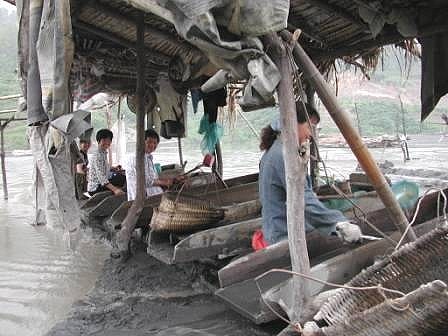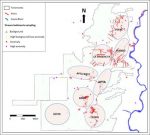
China remains by far the world’s largest producer of primary antimony. It’s estimated that China accounted for around 70% of official mine production in 2011, down from around 80% in earlier years. Production in China is unlikely to increase over the next few years and could even fall in the face of government determination to limit environmental damage from smaller operations.
Efforts to improve the environmental impact of the industry have led to a number of suspensions and closures at mines and smelters, with some plants unable to meet the costs of upgrading and improving their facilities. This, together with increasing crackdowns on illegal mining and smuggling, has contributed to volatile production levels.
It’s estimated that illegal supply from China amounted to 15-20% of total world supply from 2008 to 2011. If the Chinese government is successful in halting or diminishing both illegal production and exports of antimony, the impact on global supply will be considerable.
Further, whilst official Chinese statistics still report considerable reserves, independent estimates suggest that they might be reaching exhaustion, particularly in the area of Lengshuijiang City, the centre of antimony mining in China. Although some resources were discovered in 2011, very few deposits have been explored or developed in recent years. There is, therefore, an increasing need for China to import more concentrates from abroad to sustain levels of refined production.
Volatility likely to continue as prices rise.
Given China’s dominant position as a producer, changes in Chinese government policy have been the most important factor affecting antimony prices since the early 1990s. Concerns over diminishing reserves in China, together with the cost to producers of environmental compliance, and increasing crackdowns on illegal mining and smuggling have all contributed to sharp price increases over the past few years.
Increased production elsewhere is likely to offset any declines in Chinese production in the short term. There are a number of significant additional sources of antimony concentrates in Europe, N. America, Africa and Oceania.
Antimony prices increased steadily throughout 2010, as mine closures in China restricted global supplies, and reached their peak in March 2011. However, prices fell back as smelters came back online in Hunan, and as a result of continued weak demand in Europe and Japan. Subsequent smelter closures following environmental checks have since caused prices to increase periodically.
Continued growth in demand for antimony, especially trioxide, combined with the uncertainty over the ability of China to increase production because of resource and environmental limitations, means prices are likely to stay high and volatile.
According to international metals and minerals research firm Roskill, prices for antimony trioxide could rise to US$15,000/t by 2016, eclipsing the US$13,000/t peak witnessed in 2011.



 Follow us on Twitter
Follow us on Twitter Become our facebook fan
Become our facebook fan










Comments are closed.